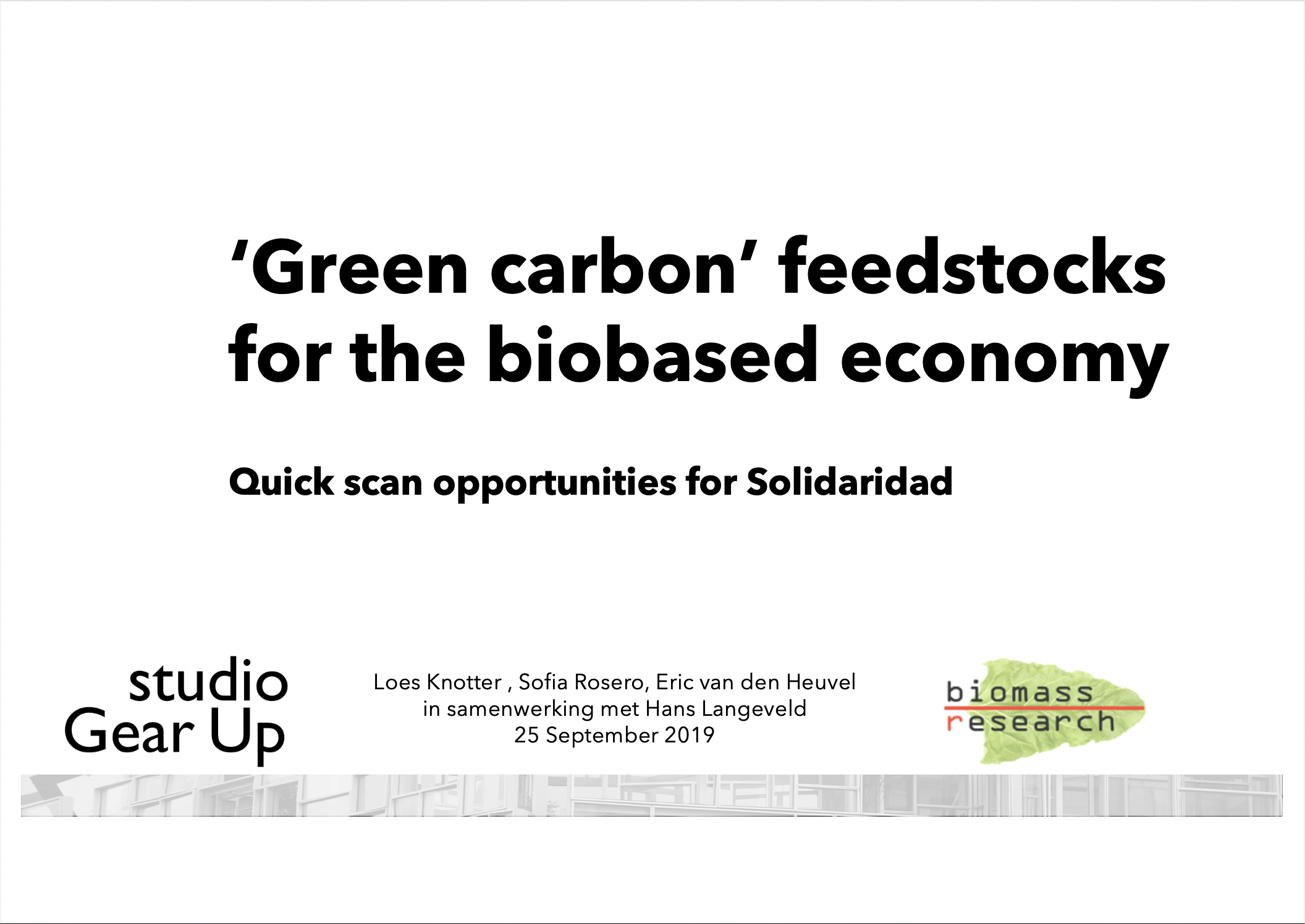For: Solidaridad
[Sep – Dec 2019]
Solidaridad is an development NGO that works towards sustainable production of various agro-based commodities. In particular, the organization aims at strengthening the social conditions and structures of smallholders at the beginning of supply chains.
This project was about exploring in a quick scan the potential of biomass residues and side streams in a selection of Solidarid’s supply-chains in different regions, farming systems. The aim was to identify implementable and sustainable practices at different levels: the farm, the local community / region, the supply-chain, the factory. Because these practices are to be implemented in rural areas, the solutions should aim to be low tech and with low costs so that they can better benefit producers and communities directly.
The quick scan identified concrete opportunities on the landscape level to integrate biomass production for local energy needs, for biomass feedstock supply chains and that strengthen local biodiversity and soil quality enhancement. The project has provided three concrete examples in the supply chains of palm oil, coffee and cocoa. Remarkable outcomes were how much biomass residues can be made available without impacting other functions like food production and also how much opportunities the landscape level offered for enhancing biomass supply while fostering forests and current land and water use.
studio Gear Up executed this project in collaboration with Hans Langeveld of Biomass Research.
Team involved: Loes Knotter, Sofia Rosero, Eric van den Heuvel
The final report can be downloaded here.




